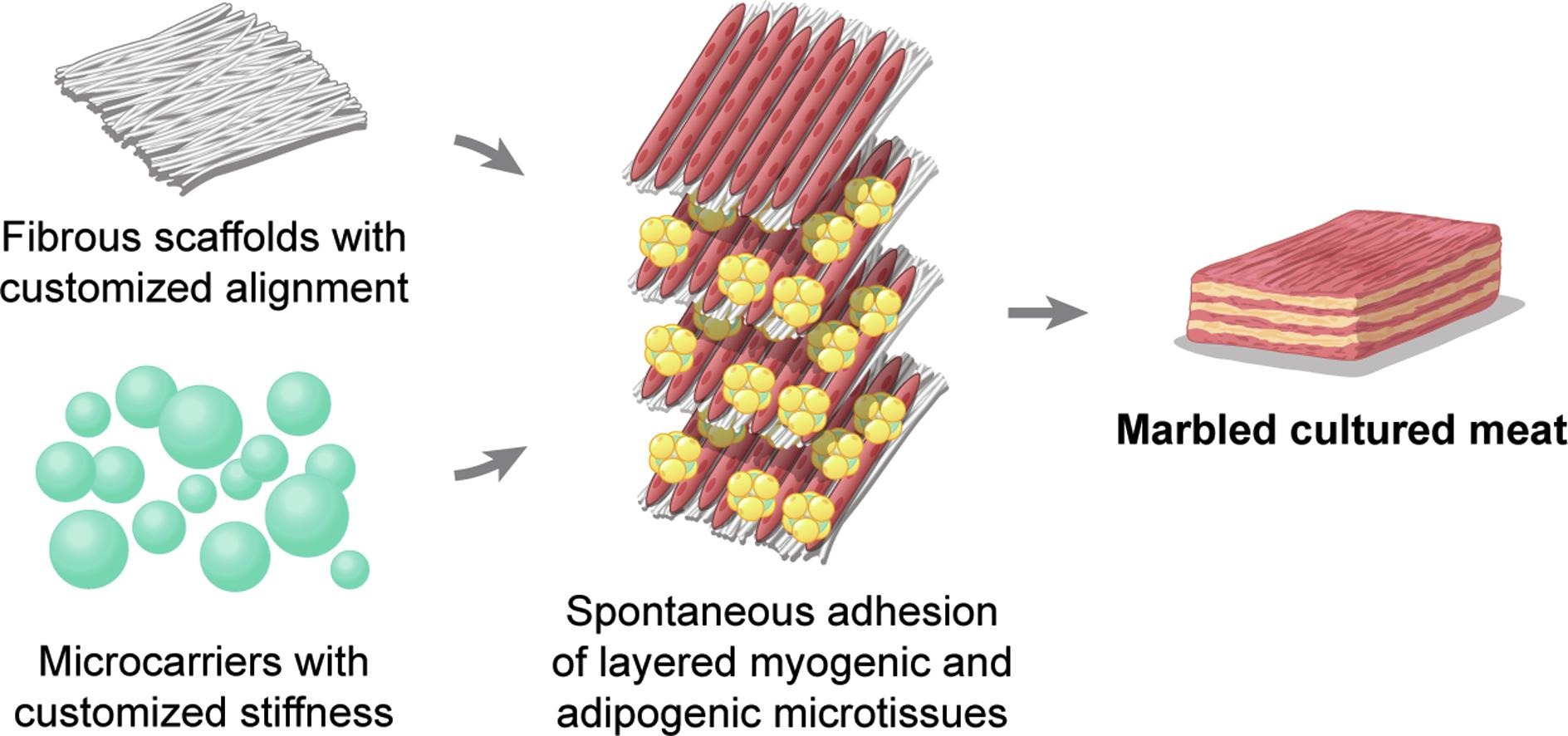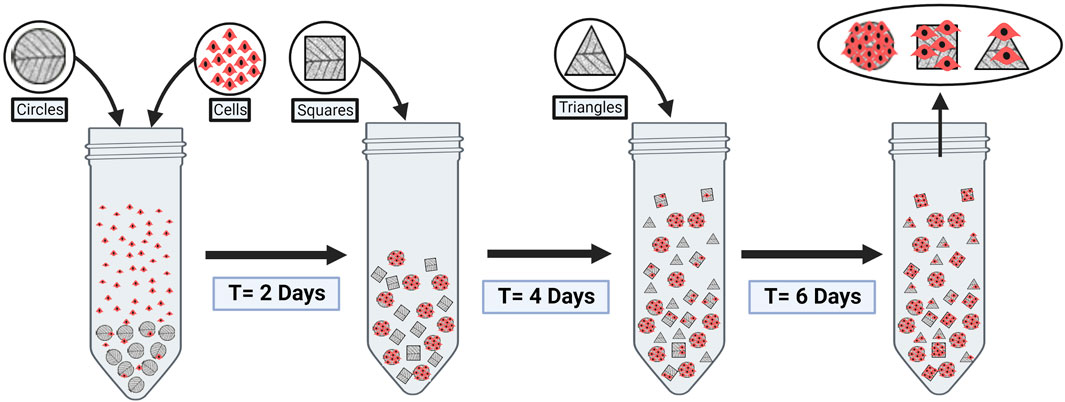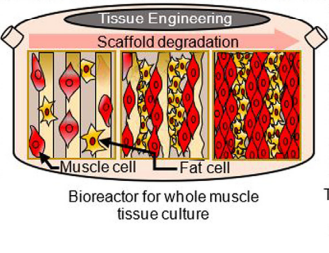- Overview
- Summary
- Funding
- Cite This Publication
Overview
Who: M.P. Sealy, K.L.M Avegnon, A. Garrett, L. Delbreilh, S. Bapata, A.P. Malshe
Published: July 12, 2022
Where: CIRP Annals
Key Takeaway: Soy-based polymer resins can withstand the heat of cultured meat production, cooking, and consumption without becoming mechanically or physically compromised.
Research Topics:
Summary
Michael Sealy et al. certify that soy-based polymer resins can withstand the cultured meat production process if used as scaffolds. They construct the potential scaffolds via vat polymerization, which allows for detailed 3D scaffold construction by curing the polymer in layers. Curing time is varied to produce three distinct samples, which are then analyzed for thermomechanical and thermochemical properties. Sealy et al. find the soy-based scaffold does not lose its mechanical or chemical properties (i.e. it will not continue to cure and harden any further) at any temperatures which may be reached in the production, cooking, or consumption of cultured meat.
Written by Morgan Ziegelski
Cite This Publication
Sealy, M. P., Avegnon, K. L. M., Garrett, A., Delbreilh, L., Bapat, S., & Malshe, A. P. (2022). Understanding biomanufacturing of soy-based scaffolds for cell-cultured meat by vat polymerization. CIRP Annals.
You Might Also Like...

Engineering multicomponent tissue by spontaneous adhesion of myogenic and adipogenic microtissues cultured with customized scaffolds
N. Stephanie Kawecki, Sam C.P. Norris, Yixuan Xu, Yifan Wu, Ashton R. Davis, Ester Fridman, Kathleen K. Chen, Rachelle H. Crosbie, Andrea J. Garmyn, Song Li, Thomas G. Mason, Amy C. Rowat

Repurposing agricultural waste as low-cost cultured meat scaffolds
Luke R. Perreault, Richard Thyden, Jack Kloster, Jordan D. Jones, Jordan Nunes, Andriana A. Patmanidis, David Reddig, Tanja Dominko, Glenn R. Gaudette

Enzymatic degradation and ageing of additively manufactured soy-based scaffolds for cell-cultured meat
A. Garrett, K.L.M. Avegnon, L. Delbreilh, J. Segurola, N. Delpouve, M.P. Sealy





